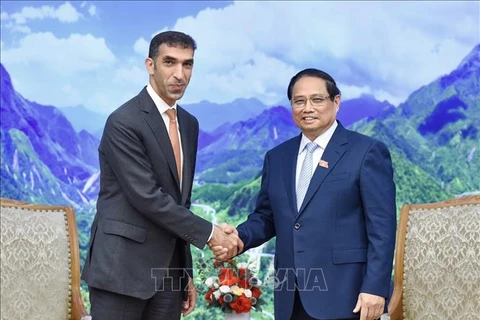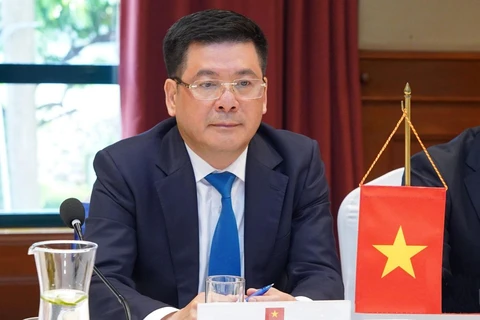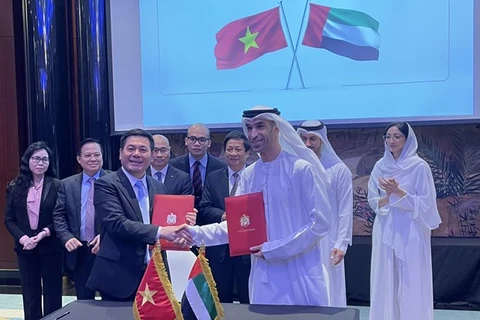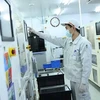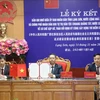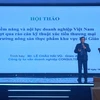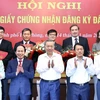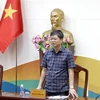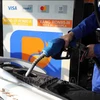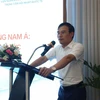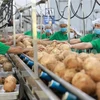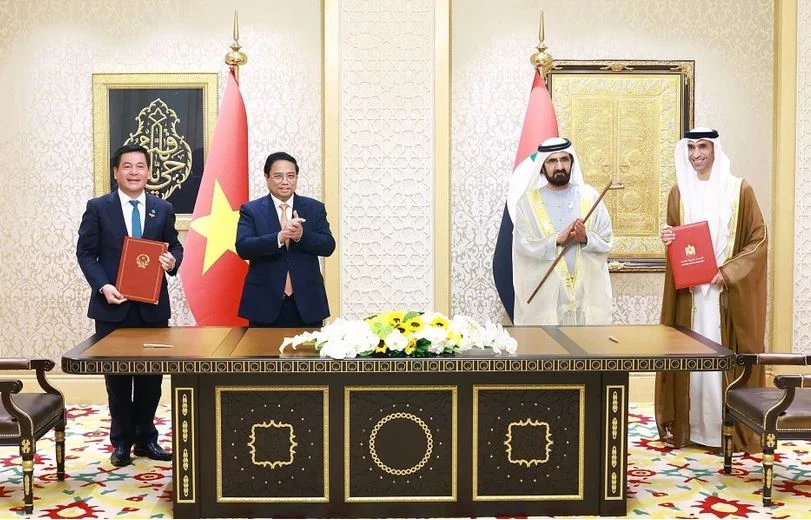
Hanoi (VNA) – The Vietnam – UAE Comprehensive Economic Partnership Agreement (CEPA), signed on October 28 during Prime Minister Pham Minh Chinh’s official visit to the country, will pave the way for Vietnamese products to break into the Middle Eastern and African markets, an official has said.
Minister of Industry and Trade Nguyen Hong Dien said the pact is Vietnam's first free trade agreement with an Arab nation in the Middle East and Africa, marking a significant step in enhancing relations not only with the UAE but also with the broader region.
The CEPA negotiation was concluded in a record time, just over a year after the talks began, demonstrating strong commitment from both countries.
With 18 chapters, 15 appendices, and two bilateral letters, CEPA covers such areas as trade in goods, services-investment, rules of origin, technical barriers to trade, sanitary and phytosanitary measures, customs, trade remedies, government procurement, intellectual property, and legal and institutional affairs.
Both sides strongly commit to trade liberalisation, with the UAE pledging to phase out tariffs on 99% of imports from Vietnam, and the Southeast Asian nation to remove tariffs on 98.5% of imports from the UAE. The deal also includes various provisions facilitating trade and investment, aligning with digital transformation and green development trends.
Dien said CEPA is a comprehensive document promising to balance interests for both countries. With its preferential commitments towards balanced benefits for both sides, it will be a crucial driver to further promote bilateral trade and investment in the coming time.
Within the framework of the agreement, the UAE commits to eliminating tariffs for many key and potential exports from Vietnam as soon as it takes effect, Dien said, adding it is expected to facilitate Vietnam’s export to this market and other Middle Eastern countries.
Notable agricultural products such as cashew nut, pepper, and honey will have greater opportunities to penetrate the UAE and the Middle East at large thanks to reduced tariffs. Moreover, this region has a high demand for quality agricultural products, particularly clean and organic items as well as those with Halal certification.
Other goods benefiting from the deal include garment and textile, leather and footwear, electronics, aquatic products, and wood and wooden ones, he added.
As the UAE is one of Vietnam's key partners in trade, investment, and labour in the region, CEPA would bring more investment opportunities to Vietnam from companies looking to make the most of and benefit from the deal.

The agreement includes an exclusive chapter on economic cooperation, in which both parties consented to implement collaboration activities in such areas as tourism, transportation, manufacturing, financial services, and energy through various formats. These include organising conferences and seminars, exchanging delegations, experts, technicians, and academics, and sharing experience between the private sectors, stated Dien. He added that this will create an opportunity for domestic businesses and experts to learn from experiences and acquire advanced technologies from the Middle Eastern country.
He stressed that CEPA will offer an opportunity for Vietnam to lure investment from the UAE in the domains of processing, manufacturing, high-tech agriculture, and infrastructure. It will also play a role in fostering trade and investment in the Middle East, a region that is home to dynamic economies with substantial scale.

In addition, the UAE is an important trade gateway in the Middle East, with big potential to connect with many countries in the region. Therefore, through this nation, Vietnamese products will have easier access to other large markets like Saudi Arabia, Qatar, and Kuwait, as well as some others in North Africa and West Asia.
Dien advised enterprises to take advantage of opportunities brought about by the agreement by actively learning about its commitments as well as business practices of the UAE market in particular and the Middle East in general.
To realise its commitments, the ministry will build a specific plan on the implementation of CEPA and popularise its content to relevant organisations and individuals, he said./.
